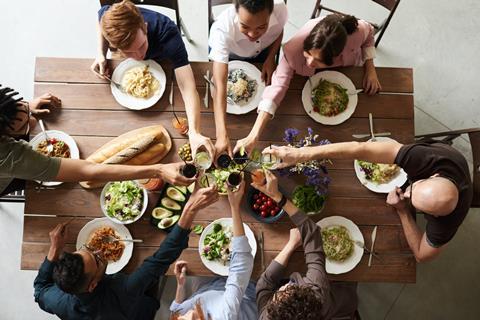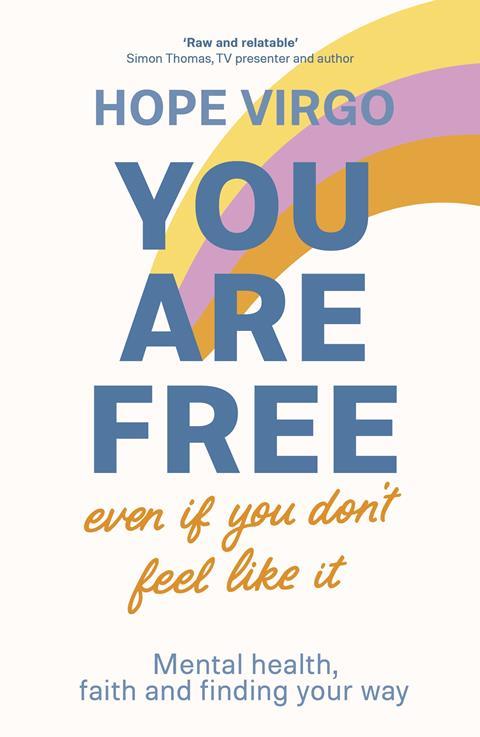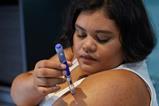Feeling at home in a church and taking part in community events and ministry can be extra challenging for those struggling with an eating disorder. Hope Virgo, author and founder of #DumpTheScales, give four tips to help people navigate church well.
When I walked back into church 11 years after I had vowed never to set foot into one again, the memories came flooding back. Throughout my teens while I wasn’t exactly sure what I believed, I had been an active member of my church from singing in the band to attending the youth group. What people saw on the outside was a bubbly, outgoing, chatty and confident teenager, but in reality I had been in the grips of anorexia. The illness had taken complete hold of me and my every waking movement, although at the time I couldn’t see it.

As I walked into church on a hot summer’s day in June 2019, my eyes darted around. I sat there sweat dripping down my back taking it all in. My mind flashed back to the lies I had told people at church and my family. I always claimed to have eaten elsewhere and calorie counting that had dominated pretty much every sermon. Fast forward a few months and I made a decision to become a Christian, and although I was still in ongoing recovery from anorexia at this time something felt different.
As I kept going to church and trying to get stuck in, I was determined to eat, to be involved, dare I say it… to be like the others! But the incessant voice in my head, the incessant all-consuming fear made this feel impossible at times.
I often write about what the church can do to help those with eating disorders, and while I believe that the church has a responsibility to make the environment work for those attending, I do also believe there are things that we can do to try and make things work for us too! Here are my top four tips to help you navigate these environments:
Speak up and be bold
This is probably one of the hardest things to do, and I completely get that, but we need to speak up, think about what could work for us in these moments. I recently was worried about a church weekend away so emailed the vicar, Tim, and asked for some steer around the food, the structure at meal times, and the ins and outs of it. I was lucky as Tim has taken the time to understand eating disorders so he got it, and came back with a very helpful response but if I hadn’t asked he may not have known to say something.
Host events or small groups
One thing I was struggling with when I went back to church was people cooking for me, and especially “batch cooking”. Instead of trying to work this out I just withdrew from so many situations. What I learnt from this is I could have tried to host more events, organise the food and then it would have meant I wouldn’t have been isolated. I know again, practically this might feel hard but perhaps it would come down to offering to host one every fortnight or month so that you can be involved.

Remember the eating disorder isn’t about food
Eating disorders are not about good and while they do present like that in so many people take some time for you to work out what is going on. For example, in the past, when the eating disorder was not taken into account I had this tendency to think that no one liked me, no one understood it, and before I knew it would be down this rabbit hole of internal dialogue where I felt unloved, and that there was something wrong with me. The more I began to understand this, the easier I found it to navigate when meals changed last minute and I was no longer relaying on others to always come through.
Have practical ways people can support you
Whether it’s by taking you to appointments, distracting you after a meal or helping with food shops, you can always ask those around you to help out.
In an ideal world, we think that people should just know what we need and reach our expectations with how they respond, but often that’s not the case. In the past I have had expectations but felt hurt by communities when they weren’t met. Perhaps what makes it worse is we don’t choose to be this way but we have to choose to keep eating. Sometimes we need to try and think, especially in recovery, how can we make this work for us? Because even if it feels uncomfortable and hard it will help us take one step closer to freedom.
You can buy Hope’s book You Are Free here.




































No comments yet